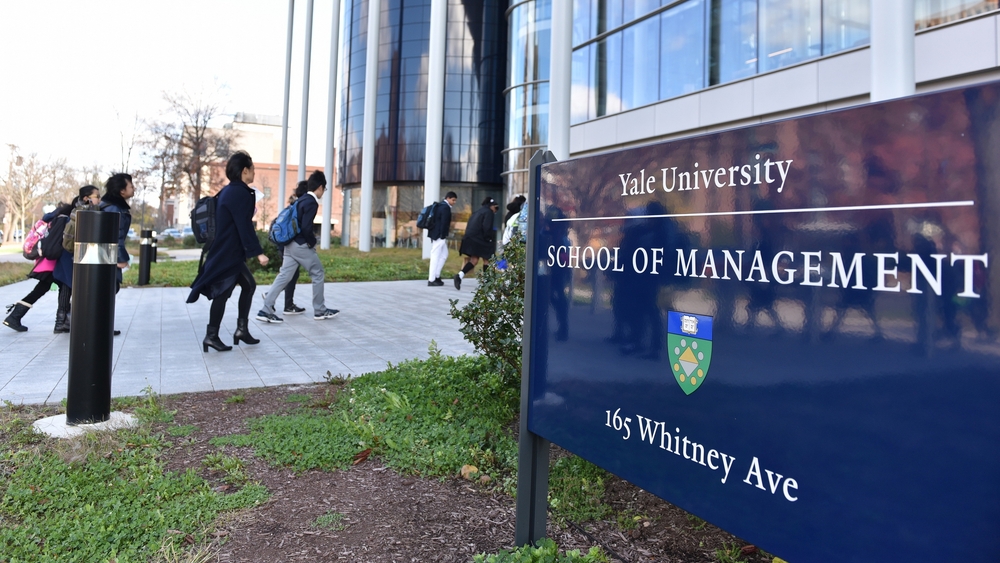Yale held their biennial CEO Summit this week, where the focal topic was, unsurprisingly, AI.
According to surveys conducted at the summit, 42% of 119 CEOs believe AI could threaten humanity’s survival within 5 to 10 years. Of that 42%, 8% suggested it could happen in five. A 58% majority denied such a possibility, claiming they were “not worried.”
Attendees to the invite-only event included Walmart CEO Doug McMillion, Coca-Cola CEO James Quincy, heads of tech companies like Xerox and Zoom, and many other executives from pharmaceutical, media, and manufacturing companies.
“The outlook is indeed grim and unsettling,” commented Jeffrey Sonnenfeld, a Yale professor who led the event.
Additionally, Yale revealed that 42% of CEOs believed AI risks were exaggerated, whereas 58% disagreed.
Despite the disagreements over AI’s dangers, there was some consensus among CEOs about the technology’s potential benefits. Only 13% of CEOs argued that AI’s potential benefits were overstated, while an overwhelming 87% disagreed.
CEOs identified healthcare (48%), professional services/IT (35%), and media/digital (11%) as the 3 industries where AI would have the most transformative impact.
The results blend optimism and fear – a duality that characterizes recent AI debates.
CEO opinions divide into 5 categories
Sonnenfeld sorted business leaders into five categories regarding their stance on AI.
The first is “curious creators” or “naive believers” who argue for unrestricted development. He compared them to Robert Oppenheimer before the creation of the atomic bomb.
The second group, “euphoric true believers,” are enthusiastic proponents of the technology. He also identified “commercial profiteers,” who eagerly embrace AI for its financial potential despite a potential lack of understanding.
Lastly, the two factions advocating for stricter AI regulations are the “alarmist activists” and “global governance proponents.”
“These five groups, each filled with righteous indignation, are completely missing each other’s points,” Sonnenfeld noted.
The absence of unanimous decisions on AI illustrates the division surrounding AI and its related topics. The only exception is the result for AI’s benefits, where an 87% majority believed the potential advantages of AI are realistic.
This week, McKinsey released a report on generative AI that predicted it could add $4.4tn to the global economy annually.
The AI debates rage on
Amidst the escalating hype surrounding AI, 2 out of the 3 ‘AI godfathers’ expressed fears over the technology, including Yoshua Bengio, who confessed feeling “lost” in his life’s work, and Geoffrey Hinton, who resigned from Google to voice his concerns.
The third, Yann LeCun, head of AI at Meta, maintains a more positive outlook.
Speaking at an event in Paris on Tuesday, LeCun dismissed AI-inflicted extinction-level risks as “absurdly ridiculous.”
He acknowledged that machines would eventually surpass human intelligence but argued that this wouldn’t happen for many years.
“Is AI going to take over the world? No, that’s attributing human tendencies to machines,” said LeCun, adding, “It will still be operating from a data center somewhere with a power-off button … and if you deem it unsafe, you simply refrain from creating it.”
He argued safety measures would emerge of their own accord, “It’s as if you asked in 1930, ‘How will you ensure a turbo-jet’s safety?… Turbojets weren’t invented until after 1930, just like human-level A.I. has not been invented yet. Turbojets were eventually made exceptionally reliable and safe.”
Speaking to the BBC, LeCun discussed AI’s impact on jobs, “[AI] won’t cause a large number of people to lose their jobs permanently,” adding AI will usher in “a new renaissance for humanity,” similar to the impacts of the internet or the printing press.
LeCun was recently involved in a Twitter debate joined by Elon Musk, who quipped at LeCun’s optimism, arguing, “You really think AI is a single-edged sword?”
You really think AI is a single-edged sword?
— Elon Musk (@elonmusk) April 1, 2023





